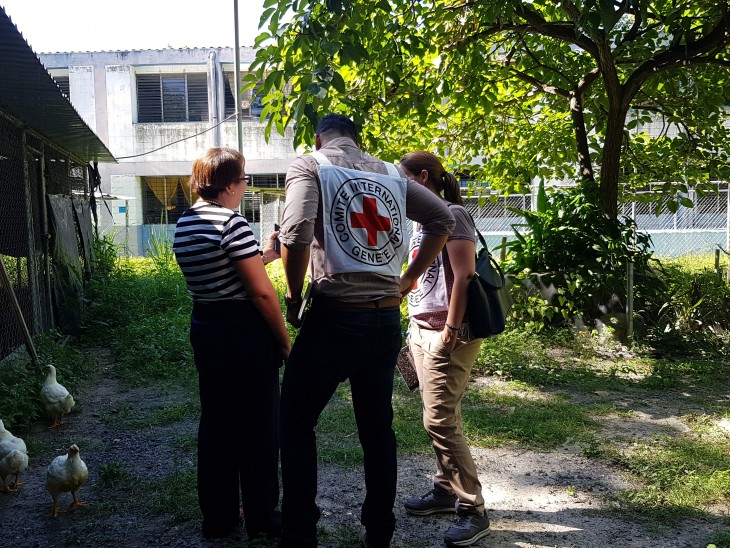Central America Annual Report 2019
In the spotlight:
Migration and Internal Displacement: An Uncertain Journey
By Jordi Raich, Head of the Regional Delegation for Mexico and Central America, ICRC
Heirs of War: Isolation or Reintegration?
By Ariane Tombet, Head of Mission ICRC Nicaragua; Kian Abbassian, Head of Mission ICRC Guatemala; Olivier Martin, Head of Mission ICRC El Salvador; Alexandre Formisano, Head of Mission, ICRC Honduras
Introduction:
he ICRC works closely with the National Red Cross Societies of the Central American countries, and they coordinate their activities. Its main activities in the region are aimed at preventing human suffering caused by violence and focus on responding to the needs of:

Humanitarian situation:
In northern Central America, specifically in El Salvador, Guatemala and Honduras, organized armed violence remains a problem, and the levels of violence and homicide in these countries are among the highest in the world.
Violence, added to constraints on access to education, health care and other essential public services and the lack of economic prospects, continues to be the main cause of displacement and migration. Violence drives hundreds of thousands of people every year from their homes in search of a better life. It permeates practically every aspect of people’s day-to-day lives, and the physical and psychological toll of this is all too evident.
Health-care personnel and teaching staff are well aware of the consequences. Children and adolescents are particularly vulnerable to forced recruitment by armed groups, the progressive deterioration of the social fabric and the lack of education and employment opportunities.

Migrants, including unaccompanied minors, face the same kind of risks as people living in areas affected by violence. During their journey, they often lose contact with their families and have little or no access to basic services. Tighter immigration policies in transit and destination countries force many migrants to take more treacherous routes to avoid detection. Migrants detained by the authorities are sometimes deported to their home country without the chance to apply for international protection or before they receive a decision from the authorities on their application for asylum or protection on humanitarian grounds.
Thousands of people remain without news of family members who are missing as a result of migration, the armed conflicts of the past or current situations of violence. The services in place to assist families in the search for their loved ones and to address their multiple needs are inadequate, mainly due to limited local capacities and the lack of national and supranational mechanisms for information exchange and humanitarian assistance. A major challenge in Central America is interstate coordination, particularly in the search for missing migrants.
With regard to the situation of people deprived of their liberty, prison overcrowding, partly due to delays in the justice system and the lack of alternatives to imprisonment, continues to be a serious concern. This situation exacerbates the generally poor conditions in prisons and means that inmates have limited access to health care.
ICRC Priorities in Central America:
The ICRC implements and supports a wide range of programmes and activities in Central America to protect and assist vulnerable people, thereby mitigating the humanitarian consequences of violence, and to promote respect for national and international rules and principles. The ICRC works very closely with the region’s National Red Cross Societies, institutions and authorities, local actors, civil society organizations and other humanitarian organizations. Our priorities in El Salvador, Guatemala and Honduras for 2019 are to:
- meet the basic needs of migrants and internally displaced people and take steps to ensure that States fulfil their obligations in this respect more effectively;
- help young people and the most vulnerable members of communities to deal with the consequences of armed violence, by strengthening their coping mechanisms and resilience and increasing access to health care and education;
- promote processes aimed at searching for and identifying people who have gone missing as a result of armed conflict, other situations of violence or migration;
- improve support and assistance aimed at addressing the needs of the families of people missing as a result of armed conflict, other situations of violence or migration, especially the right to know the fate and whereabouts of their loved ones;
- strengthen regional coordination and information exchange mechanisms for the search for people missing as a result of migration;
- guarantee that the conditions of detention and treatment of young people and adults deprived of their liberty are humane and conform to international standards;
- strengthen the involvement of the authorities, the armed forces, the police and the general public to improve support for the International Red Cross and Red Crescent Movement and promote greater respect for humanitarian principles and international humanitarian law.


